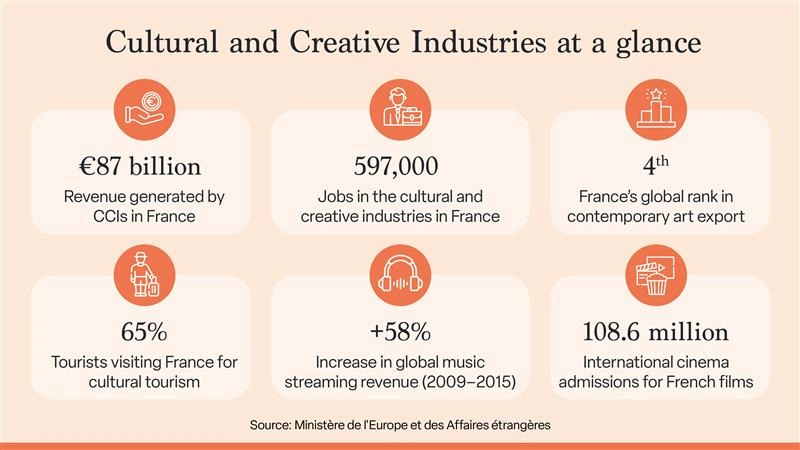A finance job demands a mix of technical and soft skills, including accounting, financial analysis, strategic planning and reporting. Strong communication, ethical decision-making and problem-solving abilities are equally important to thrive in the financial sector.
The financial market is an important pillar of the economy. It helps in seamless exchanges of capital, commodities and currencies across borders. For professionals aiming to build a career in this field, mastering financial skills is of utmost importance. Financial markets are being driven by globalisation and technological advancements. These are reshaping financial systems and thus, making careers in the financial markets more exciting and rewarding than ever.
Employers hiring for financial roles actively seek candidates with a strong background in data analysis, risk management and financial modelling. Having these key financial career skills on a resume can set you apart from many other candidates. Thus, demonstration your readiness to thrive in a fast-paced, global environment. This blog discusses the top financial career skills that employers look for and how they can be developed.
What are financial career skills?

Financial career skills, often referred to as finance skills, refer to a set of technical and soft skills that can be used by professionals to manage, analyse and interpret financial data. It enables them to make informed decisions and drive business success across industries.

Accounting, banking, investment and business management are areas in which these skills are highly valued and anyone aspiring to advance their career in these fields should possess them.
Financial career skills for professionals
A successful career in global financial markets requires both technical expertise and soft skills. Here is the list of the most critical skills:
1. Financial modelling
A finance professionals should be well equipped to understand a predictive model, analyse scenarios and evaluate investment opportunities. These financial models help organisation to identify market trends and manage risks. It evaluates business strategies and accordingly plans for future growth.
These models are widely used for tasks such as business valuation, scenario analysis, budgeting, cash flow forecasting and investment analysis.
2. Data analysis and interpretation
A career in the financial markets requires professionals to analyse data and discover valuable insights. They must have a sharp eye for spotting trends, making connections and identifying irregularities. Using data analytics, professionals can extract actionable insights from large datasets.
These skills can be learnt through a finance master's degree, which will prepare you for real world situations.
3. Risk management
Identifying and mitigating risks tied to investments or market fluctuations is crucial to protecting assets. Effective risk management in finance involves a structured process:
- Identify potential financial risks
- Assess risk likelihood and impact
- Prioritise critical threats
- Implement mitigation strategies (e.g. diversification, hedging, insurance, partnerships)
Risk management measures must be continuously monitored and reviewed to remain effective as market conditions evolve. By following this, businesses and investors can safeguard their financial health and achieve their long-term objectives.
4. Accounting skills
Accounting skills are essential for a successful career in finance. It provides the framework for understanding data accurately. Proficiency in accounting enables professionals to evaluate a company’s financial performance, forecast future outcomes and manage financial risks.
Employers in the financial sector consistently seek candidates who possess the ability to read and understand key financial documents such as:
- Balance sheet
- Income statements
- Cash flow statements and
- Annual report
For example, effective cash flow management tracks the flow of assets as they move in and out of a business. So, the business can understand financial needs and avoid liquidity crises. This is important for an organisation's stability and growth.
5. Proficiency in financial software
Finance professionals also rely heavily on tools such as Excel and specialised financial modelling or accounting software. Mastering these tools is essential for efficient data analysis and insightful reports.
As automation and data analytics change the industry, knowing how to use these tools gives you an edge. It is not just about technical skills; it is a smart move for anyone building a career in financial markets.
6. Economic forecasting
Economic forecasting is an important skill for finance professionals, helping them to predict a company’s financial future. This approach is invaluable for strategic decision-making, helping business leaders with hiring, budgeting and long-term planning.
Pursuing a master's in finance in Paris equips students with advanced forecasting techniques and analytical tools. Thus, helping them to excel in today’s dynamic financial landscape. These programmes emphasise both quantitative and qualitative forecasting methods, teaching students how to interpret economic indicators, identify trends and make data-driven recommendations.
7. Analytical thinking
Professionals need to link data insights to develop strategies that align with market trends and business objectives. Finance professionals do more than just work with numbers; they must think critically, interpret data effectively and draw meaningful conclusions that support smart, strategic decision-making.
Ecole de Management Appliqué’s master’s in finance sharpens analytical thinking through a practical, case-based approach. Students engage with real-world financial scenarios, explore data-driven solutions and learn to apply critical analysis to complex problems.
8. Communication and interpersonal skills
Effective communication and strong interpersonal skills are indispensable financial career skills that significantly enhance a professional’s ability to succeed in the finance industry. Finance professionals often deal with complex and detailed financial data that must be conveyed clearly and concisely to clients, stakeholders or team members.
9. Problem-solving skills
Problem-solving abilities are among the most vital finance career skills that professionals develop through a comprehensive finance course in finance. Experts in finance regularly face challenges that require innovative and strategic solutions; for instance, boosting profits, lowering costs or refining investment strategies.
10. Decision making skills
Professionals with strong decision-making skills are better equipped to navigate complex business challenges, allocate resources efficiently and drive organisational growth. Whether you are a manager, analyst or planner, mastering these finance career skills will allow you to make informed decisions that minimise risks and maximise opportunities.
Consequently, decision-making is a critical skill to highlight on your resume, demonstrating your ability to contribute to the financial success and strategic direction of any organisation.
Educational pathways: Master’s in finance
Developing these financial career skills leads to improved decision-making, increased job security and enhanced earning potential. With the right training, such as a finance programme, certification or advanced degree, anyone can develop these skills effortlessly.
Paris, a global financial hub, offers unmatched access to top institutions, multinational companies and real-world financial markets. For students looking to build a successful finance career, studying in Paris provides the ideal environment; combining academic excellence with professional opportunity.
École de Management Appliqué (EMA) in Paris offers top professors who are also industry practitioners having hands-on experience. Moreover, while studying, you can take advantage of internship opportunities with top financial firms. EMA also collaborate with key financial institutions to offers seminars and workshops providing valuable industry exposure. This creates an excellent networking opportunity in the city of light.
FAQs about financial career skills
Q. What skills do you need for a finance job?
Q. How can I develop the most in-demand finance career skills?
You can pursue a bachelor’s or master’s in finance in Paris, one of the most influential financial hubs in the world. By doing this, you will be able to develop essential skills and prepare for a successful career in the financial sector.
Q. What are the requirements for admission to the master's programme in finance in Paris?
For admission to a master's in finance in Paris, you must hold a bachelor’s degree in finance, economics, business or a related field. Most business schools also require proof of English proficiency (like IELTS or TOEFL), a strong academic record and sometimes a GMAT or GRE score. Prepare a compelling application with a CV, motivation letter, academic transcripts, and letters of recommendation. Some institutions may also conduct interviews as part of the selection process.
Q. What career skills should I include on a CV for a finance role?
When applying for finance roles, highlight key skills such as accounting, financial literacy, budget management, reconciliation and an understanding of financial statements. Employers also value technical skills, strong communication and proficiency with tools such as Microsoft Excel.
Q. What are the career opportunities in finance?
A career in finance includes positions in emerging fields such as financial technology (FinTech), wealth management, insurance, real estate finance and economic consulting, all of which offer exciting opportunities for professionals seeking innovative and highly specialised roles.

 Brochure
Brochure
 Apply Now
Apply Now
